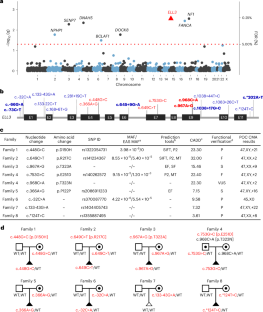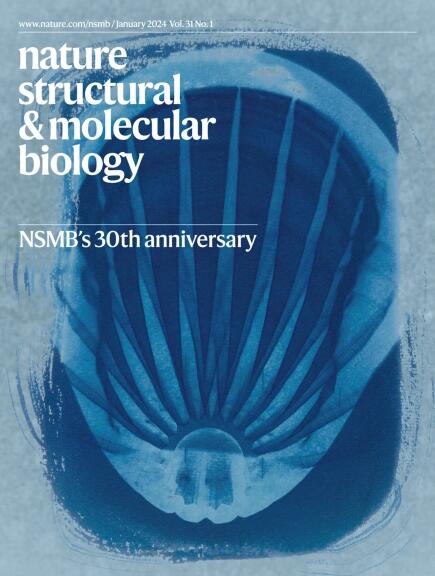Maternal ELL3 loss-of-function leads to oocyte aneuploidy and early miscarriage
IF 12.5
1区 生物学
Q1 BIOCHEMISTRY & MOLECULAR BIOLOGY
引用次数: 0
Abstract
Up to an estimated 10% of women experience miscarriage in their lifetimes. Embryonic aneuploidy is a leading cause for miscarriage, infertility and congenital defects. Here we identify variants of ELL3, a gene encoding a transcription elongation factor, in couples who experienced consecutive early miscarriages due to embryonic aneuploidy. Maternal ELL3 knockout leads to mouse oocyte aneuploidy, subfertility and miscellaneous embryonic defects. Mechanistically, we find that ELL3 localizes to the spindle during meiosis, and that ELL3 depletion in both mouse and human oocytes increases the incidence of meiotic spindle abnormality. ELL3 coordinates with TPX2 to ensure the proper function of the microtubule motor KIF11. Live imaging analysis shows that ELL3 is paramount for promoting spindle assembly and driving chromosome movement. Together, our findings implicate maternal ELL3 deficiency in causing oocyte aneuploidy and early miscarriage. The authors show that ELL3 maintains chromosomal ploidy by promoting spindle assembly and driving chromosome movement in oocytes. Deficiency of ELL3 results in oocyte aneuploidy and may lead to early miscarriage.


母体 ELL3 功能缺失导致卵母细胞非整倍体和早期流产
据估计,多达10%的女性在其一生中经历过流产。胚胎非整倍体是流产、不孕和先天性缺陷的主要原因。在这里,我们鉴定了ELL3的变体,这是一种编码转录延伸因子的基因,在由于胚胎非整倍体而经历连续早期流产的夫妇中。母体ELL3基因敲除导致小鼠卵母细胞非整倍体、低生育能力和各种胚胎缺陷。在机制上,我们发现ELL3在减数分裂过程中定位于纺锤体,并且ELL3在小鼠和人类卵母细胞中的缺失增加了减数分裂纺锤体异常的发生率。ELL3与TPX2协调,保证微管电机KIF11正常工作。实时成像分析表明,ELL3在促进纺锤体组装和驱动染色体运动中起着至关重要的作用。总之,我们的发现暗示母体ELL3缺乏导致卵母细胞非整倍体和早期流产。
本文章由计算机程序翻译,如有差异,请以英文原文为准。
求助全文
约1分钟内获得全文
求助全文
来源期刊

Nature Structural & Molecular Biology
BIOCHEMISTRY & MOLECULAR BIOLOGY-BIOPHYSICS
CiteScore
22.00
自引率
1.80%
发文量
160
审稿时长
3-8 weeks
期刊介绍:
Nature Structural & Molecular Biology is a comprehensive platform that combines structural and molecular research. Our journal focuses on exploring the functional and mechanistic aspects of biological processes, emphasizing how molecular components collaborate to achieve a particular function. While structural data can shed light on these insights, our publication does not require them as a prerequisite.
 求助内容:
求助内容: 应助结果提醒方式:
应助结果提醒方式:


